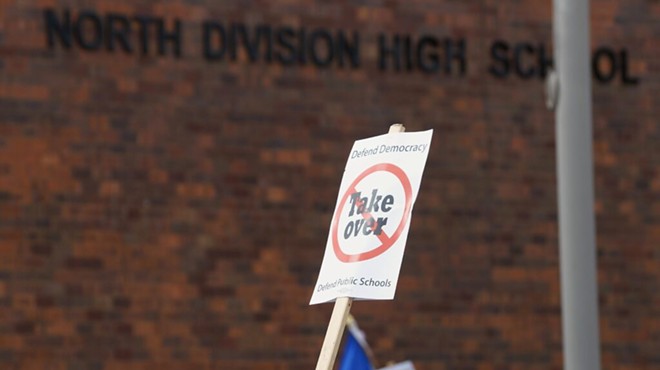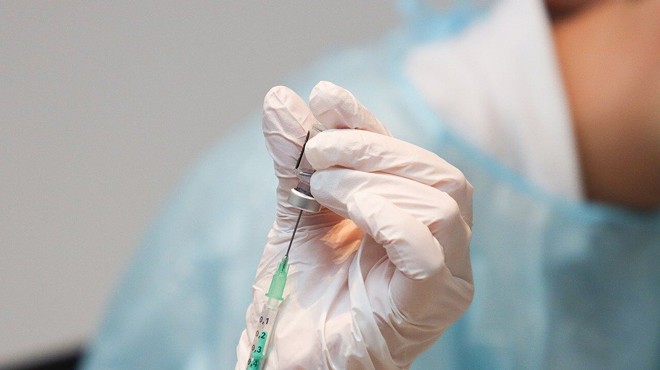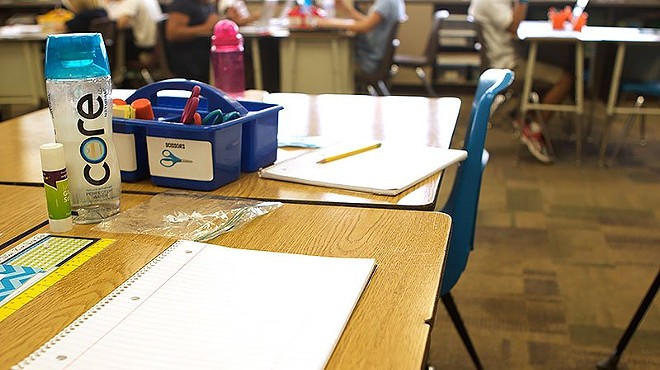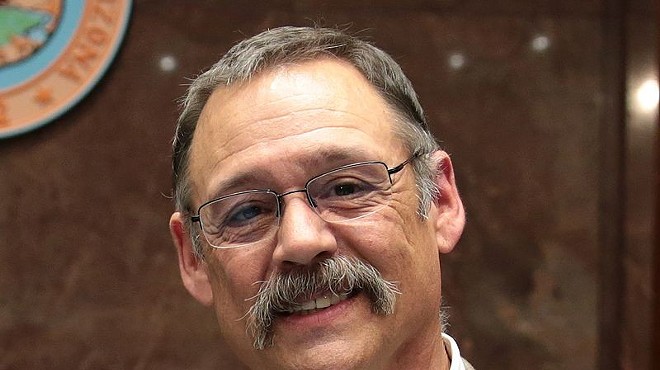Thursday, August 21, 2014
Schools, Society And Snake Oil Salesmen

- Image courtesy of shutterstock.com
A few days ago I wrote a post, Arizona's Economic/Education Divide, about the undeniable correlation between the state grade schools in Arizona receive and the family incomes of the students who go there. I've hammered away at the connection between family income and school achievement for years and will continue to hammer away at it in the future. Let me explain why.
For lots of people, the income/achievement connection in education is so obvious, it hardly deserves mentioning. I mean, just look around the Tucson area. Marana, Oro Valley, the Foothills and Vail are filled with "A" schools along with a smattering of "B" schools — high grades to match the areas' high incomes. The south side of Tucson is where you find the greatest concentration of "D" schools to go with the high rate of poverty in the area. You'll find the same geographic/economic distribution of school achievement across the U.S. You'll find it around the world.
Of course, some students provide stunning exceptions to the overall rule, starting out in poor families and ending up with PhDs from Harvard, and some schools manage to defy the odds and get test results higher than their students' low socioeconomic status would suggest. But those are the occasional exceptions to the rule. They're outliers in an overwhelmingly consistent pattern.
However, some people deny this fundamental correlation between family income and educational achievement. In fact, leaders of the Education Reform/Privatization movement have spent years and hundreds of millions of dollars purposely, systematically, repeatedly denying the connection, or at least minimizing its importance. Low achievement by students from low income families isn't about poverty, they maintain. It's about failing schools, bad teachers — and, of course, teachers unions which pamper their members and ignore the needs of the students. "Stop making excuses!" they shout to people who acknowledge that low income schools tend to have low performing students. "Students will do great things if you just give them great teachers with high expectations!"
Remember George Bush's line about "the soft bigotry of low expectations"? It's a beautiful phrase with at least a kernel of truth to it, but its main purpose was to bludgeon teachers and administrators who work with low income students, saying to them, "You're all a bunch of bigots who think your students are too stupid to do well in school because they're black or brown or poor! Their low test scores are your fault, because you're lousy educators who refuse to have high expectations for your students."
The leaders of the education reform/privatization movement are accomplished snake oil salesmen. Like the con men of old who used to stand on the back of wagons pitching their wares, these purveyors of educational snake oil begin by rolling out their gruesome descriptions of the aches, pains and mortal illnesses their audience is afflicted with. The only difference is, their pitch is about educational, not physical ailments.They tell horror stories about the mortal danger our country is facing due to our "failing schools" which are sapping our children of their educational potential and turning us into a second rate economic power, soon to be overwhelmed by international competition. When their audience has been sufficiently beaten down, when they've lost all hope that our system of public schooling can ever succeed, when they're ready to grasp at any solution offered up with sufficient evangelical zeal, the con men pull a bottle of magic potion off the back of the wagon and wave it in the air, guaranteeing it will cure all our educational ills. They recite the ingredients in their elixir: charter schools, vouchers, elimination of teacher tenure, elimination of teacher unions. And they promise, if the country drinks it, our educational ills will be cured.
The biggest problem with buying snake oil is, if you believe it will cure what ails you, you're likely to ignore treatments which can actually help. The con man's "magic elixir" won't make things any better, and over the long run, it could make things worse. That's the primary danger in buying the phony cure-all offered by the reform/privatization salesmen. It's not that charter schools and private schools are inherently worse than school district schools. They aren't. The vast majority of serious studies say there's little difference between the achievement of similar students in the three types of schools. The problem is, they're no better than what we already have. If we drink their reform/privatization potion and think it's going to make a difference, we'll end up running in place, going nowhere in terms of improving educational outcomes. Or worse, we'll end up dismantling the system of public education which, for all its flaws, is the best hope we have for educating our children.
And if we drink the reform/privatization snake oil, if we believe our schools can make children from poor families achieve at the same level as children from well off families, we'll ignore the fundamental truth that poverty and poor educational achievement are inextricably linked. We'll forget that if we address the root causes of poverty — even if we can lessen the adverse impacts of poverty on children — we'll raise student achievement whether or not we improve our schools. And if we work on making our schools better at the same time, we'll achieve a multiplier effect. We won't work the miracles the snake oil salesmen promise, but we're far more likely to see genuine improvement in student achievement, especially from the lowest achieving students who live in the greatest poverty.
This hits at one of the primary reasons the conservative proponents of the reform/privatization movement are so keen on selling their snake oil. They don't want to shoulder the burden of reducing poverty. That would cost money. The richest individuals and corporations would end up paying more taxes and the money would be redistributed in ways that will improve the lives of the poorest among us. It would mean maintaining a robust food stamp program and improving access to quality health care. It would mean raising the minimum wage. And actually improving the educational quality of our schools would mean repairing and replacing school buildings, replacing outdated infrastructure and textbooks, lowering class sizes and paying our teachers the kind of wages which will attract top quality educators and keep them in the classroom.
All these things cost money, and the people funding the reform/privatization movement absolutely don't want to spend more money on wages, social programs or education. So they continue to push their wares on a gullible public which is willing to believe the reform/privatization snake oil will cure our educational ills.
Tags: Education , "Education reform" , Privatization , Charter schools , Vouchers














